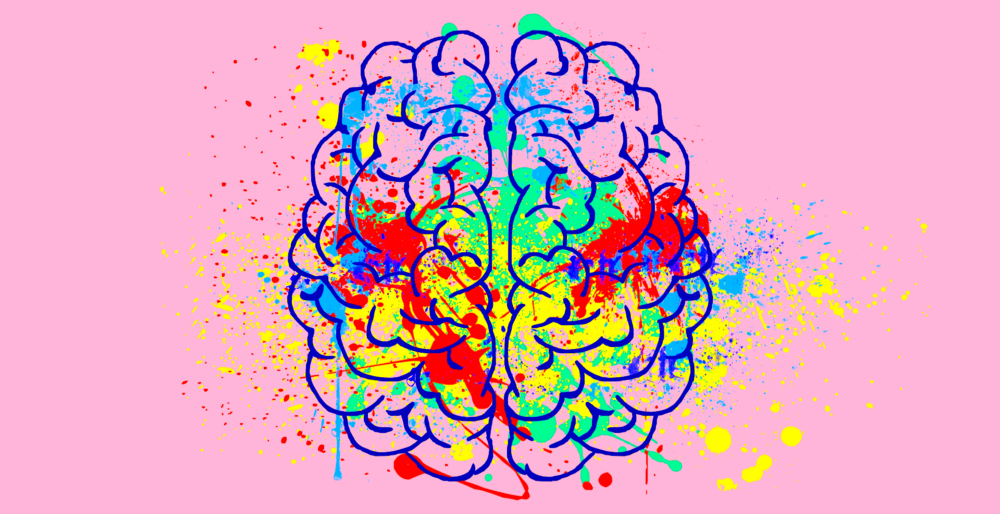
Stanford Encyclopedia of Philosophy: Scientific objectivity is a characteristic of scientific claims, methods and results. It expresses the idea that the claims, methods and results of science are not, or should not be influenced by particular perspectives, value commitments, community bias or personal interests, to name a few relevant factors. Objectivity is often considered as an ideal for scientific inquiry, as a good reason for valuing scientific knowledge, and as the basis of the authority of science in society.
Theologians have long argued for the necessity of an ultimate cause. There must be, to their way of thinking, a final link in the long and lengthening chain of causes and effects; a page where the final word is written and all debate end.
Science, at least as I understand it, does not require the universe to rest upon such an ultimate foundation. If it ever did, surely quantum mechanics and theoretical physics have nearly demolished that view by now. Regardless, as the Stanford Encyclopedia of Philosophy definition of scientific objectivity provided above indicates, science generally does assume an absolute reality, if not an ultimate essential one, which is not only indifferent to our perception of it, but to our very existence in the universe which science strives to describe.
However, phrases like absolute or ultimate reality can be easily misinterpreted and misapplied. This is especially true in a social context. It may be absolutely true that gravity exists or that light has an upper-speed limit, but we cannot extrapolate moral truth, no matter how we define it, from absolute truths about physical reality. While our more immediate social universe is just as much a part of reality as gravity or the speed of light, it is a highly complex and dynamic local system with many highly evolved moving parts. Straightforward inflexible Newtonian laws simply do not apply in a direct easily calculable way when it comes to human interactions. Nor do the principles of the far less intuitive world of quantum mechanics.
As I have argued elsewhere, as social beings humans are necessarily endowed by evolution with a kind of moral scaffolding. This view is hardly unique to me. Charles Darwin also shared it, and numerous contemporary scientists appear to be in the process of validating it.
It is possible to objectively show how and why social creatures will necessarily place more emphasis upon cooperation than competition, at least among themselves, and to demonstrate that this truth necessarily has moral implications for any species reaching a certain level of mental and social development. However, this is a far cry from claiming that it is objectively true that either cooperation or competition in and of themselves are absolutely moral. An army is a collection of cooperators, but we wouldn?t say their unprovoked invasion of a neighboring country was moral just because it took cooperation to pull off the attack. Nor would we say an argument for the immorality of the attack was flawed because the innocent people on the receiving end of the invasion couldn?t possibly be objective about the suffering they were enduring at the hands of the attackers.
 See Craig Axford?s article, Human Beings Are Wired For Morality, for an overview of some of the current scientific research regarding our capacity for empathy and cooperation.
See Craig Axford?s article, Human Beings Are Wired For Morality, for an overview of some of the current scientific research regarding our capacity for empathy and cooperation.
Being ?wired for morality? does not guarantee moral outcomes, any more than a house being wired for electricity guarantees the lights will come on or the appliances will all work. Lights burn out, appliances fall into disrepair, wires fray, and sometimes the owner fails to pay the electric bill. Having the capacity for something like morality, even having a biological preference for it, is still far from anything like a guarantee that we will always do the right thing, or even know what the right thing is. It just means we?ll tend to want to get it right. This is good news ? as far as it goes. If we?re taking the long view I do believe it?s grounds for optimism.
Evolution loves efficiency. Efficiency, by definition, means getting something done the maximum number of times with the minimum amount of effort. When talking economics, we typically focus most of our attention on the reduced labor or material costs efficiency brings while overlooking the fact that getting one thing maximally right frequently means ignoring a great deal of noise coming from a variety of other important sources. As with cooperation, our tendency for tunnel vision is also wired into our nature. That?s because life and death decisions on the savanna didn?t allow us the luxury of taking all the time we needed to separate the wheat of actual reality from the illusory chaff thrown up by our less than perfect perception.
Take snakes, for example. Though we are not born with a fear of them, we are born prepared to quickly learn to fear them (among many other things). This is referred to as prepared learning, which is only somewhat distinct from instinct. While the vast majority of snakes are not venomous, among those that exist are the deadliest land-dwelling creatures on earth. Having encoded in your genes the ability to quickly learn to fear that which can kill you gives you the edge over those that lack this capacity, even if it means your fear will be misplaced in the majority of similar cases you?re likely to encounter.
We like to think our moral evaluations are far more abstract and complex than something like our fight or flight response. However, at least initially, these judgments rely mostly upon the same parts of the brain that light up when we perceive (or think we do) something we fear. As a result, we often jump to moral conclusions in much the same way we jump when we hear something rustling in the grass nearby.
Certain actors can, for lack of a better word, be morally venomous. Rather than treating people behaving in ways that outwardly appear suspect on a case-by-case basis ? carefully considering the context in detail, reviewing an individual?s personal history, evaluating the person for mental health problems, etc. ? we become immediately cautious and distrustful. If the person can be identified as coming from another group other than our own, we more readily transfer our initial feelings of distrust or disgust to his or her entire group, and then very shortly begin rationalizing this stereotype. After all, it?s better to be wrong a hundred times than it is to get bitten once by something deadly, even if only metaphorically speaking, right? As Carl Jung knew all too well, it is no coincidence that we frequently refer to people whose behavior sinks below a certain level as ?snakes.?
None of this is to say stereotyping or scapegoating is okay. Getting judgments about other people wrong 99 times out of a 100 is different than getting it wrong that often about snakes or other dangerous animals, even if the biology behind both tendencies operates largely in the same way. That a behavior is explicable is not a sufficient reason to conclude it is moral.
As I point out above, evolution is generally efficient, and efficiency isn?t interested in slowing down to look at the big picture. Morality, on the other hand, demands it. While it may be reasonable to put one?s guard up immediately in particular natural or social settings, it?s rarely reasonable to shoot first and ask questions later. Freezing in our tracks or backing away slowly from a potential danger, be it of the physical or moral variety, buys us time to gather the information needed to make the correct choice without putting ourselves at risk. But to the extent the facts come in, we should act accordingly.
Everything discussed so far is biologically and context-dependent, not transcendent. It should be becoming clear that morality is necessarily proximate/local, relational, and ultimately based on sound reasons. It is not remote, inaccessible, and opaque. Being grounded in both our biology and our social interactions, morality is also not objective in any strong sense of that word. To a subject(s) it is a highly salient condition, to say nothing of being emotionally fraught. It is ironic that those purporting to be morality?s staunchest defenders so consistently obliterate its relevance by insisting that its ultimate source is so distant as to be completely inaccessible to people in their daily lives.
In discussions of morality, extreme examples are often abused. There is a tendency to revert too quickly to examples like the Holocaust or slavery. In such instances, the nuance inherent within more day-to-day moral dilemmas ? the sort with which most people can actually relate ? are rarely if ever addressed.
With that disclaimer in mind, any test of either morality?s transcendent objective nature or its proximate and accessible qualities must be able to show at least one of these positions is workable under our worst case scenarios. If one or neither of these descriptions of morality works under the pressure imposed by situations of extraordinary cruelty, such as genocide and slavery, then that description(s) simply is not workable.
Let?s use slavery as our extreme example. According to those contending that an ultimate objective morality is necessary for anything to really be right or wrong, there can be nothing truly immoral about slavery in the absence of something like a supreme being dictating its wrongness to the universe, or, alternatively, a universal moral law that is analogous to the physical law of gravity. In other words, the wrongness of the act lies not in the suffering taking place on the plantation where slaves are toiling for long hours under the lash and a hot sun, but out there somewhere, where moral codes are written by god or nature.
If an advocate for an ultimate source of morality offers a single sufficient proximate reason for the wrongness of slavery, he has nullified his entire argument. There?s no need to go any further to justify his abolitionist stance. Let?s say he visits a slave plantation and finds it intensely emotionally distressing, and afterward offers this personal experience as evidence for why slavery must be wrong. It doesn?t get much more proximate than the nauseating sight of human torture and neglect on such a massive scale. If he says making people work against their will violates the Golden Rule which insists upon the rightness of treating others as we would be treated ourselves, and infringes upon their liberty to decide for themselves the work they are willing to do besides, he has now offered two more proximate reasons.
By gathering earthly evidence it can be shown that both of these reasons accurately reflect the feelings of others living both in and out of slavery, including even by the slave owners themselves ? though they may be loath to admit it. The physiological and emotional damage associated with slavery and other forms of oppression can, with today?s knowledge and technology, readily be compared to the average physical and emotional health of populations living outside such conditions. The results of these comparisons only further strengthen the proximate case for slavery?s immorality.
I do think that if social creatures with something close to or greater than our level of development exist anywhere else in the universe, it?s reasonable to assume these creatures will eventually arrive at the same conclusions regarding things like slavery that humanity eventually did if they haven?t already. However, it would be wrong to argue that The Golden Rule, or some permutation of it, is therefore similar to gravity.
Limits on the infliction of suffering must extend at a minimum to a social organism?s own small group if the group is to have any chance of surviving as such. Game theory has done an excellent job of demonstrating this through its various Prisoner?s Dilemma experiments and close examinations of various strategies such as Tit for Tat and Tit for Two Tats, etc.
But these approaches to morality are applicable wherever highly intelligent social life exists because they emerge from certain necessary local conditions, not because they are imposed by the universe upon individuals and societies everywhere. In other words, morality is a bottom-up, not a top-down phenomenon. Gravity had to come before stars, planets, life, etc. Likewise, the speed of light was built into the fabric of the universe and would have been the same regardless of the existence of anyone with eyes to see it or brains big enough to devise ways to measure it. But morality only bubbles up here and there where the social conditions are right for it to do so. At best it is an objectively verifiable highly contingent local emergent property which has as its primary condition the requirement that those articulating it have the capacity for both self-awareness and subjective experiences.
A deity or other supposed top down ?objective? source is not burdened with the need to have any reasons for the wrongness of slavery, let alone any experience with it. The same goes for genocide, murder, rape, child abuse, etc. These things are wrong, according to those insisting morality have such lofty origins, because the source itself decrees it, period. This source presumably could have decreed otherwise, in which case slavery and all the rest of it would be right, even if all the negative effects these acts had on the victims remained unchanged. The impact the wrong behavior has upon those unfortunate enough to be on the receiving end of it matters not at all to God, or whatever this mysterious source is, because if it mattered to Him, there would be a justification for the immorality of slavery, even if that justification came down to nothing more complicated than how watching others suffer needlessly made Him feel. There can be no reasons or feelings that are equal to or greater than the ultimate source itself because the moral command or prohibition having an ultimate source is what supposedly renders it an objective moral truth.
In the emergent, proximate, bottom-up case for morality the feelings of the beings involved and the thoughts these feelings give rise to are ultimately all that matters. It is precisely their experiences and the probable impacts these experiences will have on them that makes morality an inherent quality of any sophisticated social system. The effects produced by the infliction of suffering can be objectively verified even as the feelings, reactions, and interactions its infliction evokes in people are highly subjective. Not only is there no need for an absolutely objective standard of morality that is free from emotion or the personal values arising from our feelings about the human experience; such a standard isn?t even socially or biologically operable.
Whether you believe in a supreme being or not, if you are suffering directly at the hands of another the only thing that matters to you is the suffering you are being subjected to against your will. The only thing that matters to other people aware of your suffering is how your suffering impacts them. Through this interaction, the bonds of sympathy are formed and moral condemnation arises. If the gates to your concentration camp or plantation are ever going to be thrown open, it will be by other tangible living beings who have good reason to think that what?s happening to you is wrong, because they feel it emotionally as much as they can argue it logically.
Whatever moral codes we attribute to our god(s) will be, as they have always been, the same as our own. I don?t think any sane believer has ever said ?God thinks this is right (or wrong), but I disagree.? Needless human suffering on the scale of genocide and slavery are wrong because we know, or have a damn good idea, how we would feel if we were on the receiving end of such treatment. Once we?ve figured this out, many of us like to say God decreed it to be wrong too ? that it is objectively true that such things are immoral. It is assumed this transcendent objectivity gives moral claims a bit more oomph than our own personal feelings and arguments are capable of providing. Regardless, the morality is still all very much grounded in the blood, sweat, and tears going on right here on Earth. Morality can only be relevant via our relationships with and feelings for each other. Removing it to the stars, if it were even possible to do so, would only cause it to be removed from our hearts. That?s not the kind of world I, for one, am at all that interested in living in.
Other recent stories by Craig Axford:
- Curiosity: without it we?re nowhere
- There?s nothing miraculous about the fact there?s something rather than nothing
Follow Craig on Twitter @craigaxford


